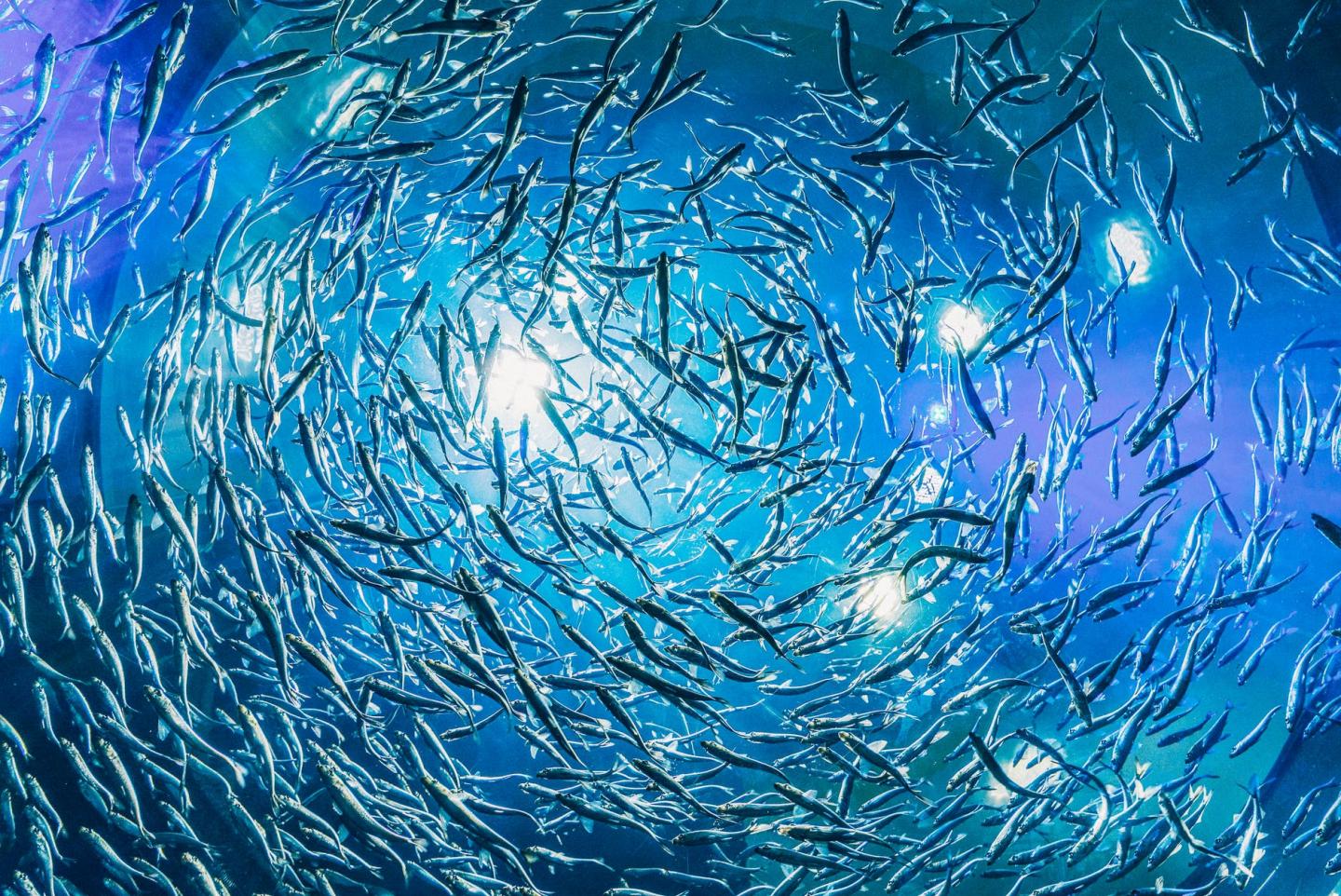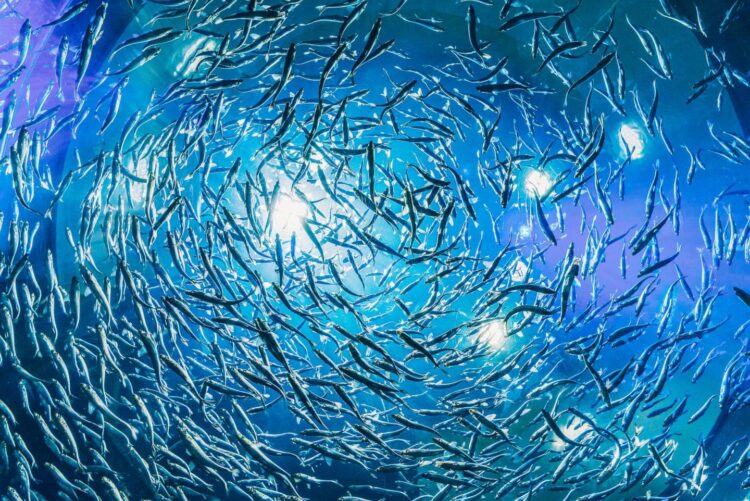Warming and fishing affecting survival of small fish

Credit: Harrison Haines
The combined effect of rapid ocean warming and the practice of targeting big fish is affecting the viability of wild populations and global fish stock says new research by the University of Melbourne and the University of Tasmania.
Unlike earlier studies that traditionally considered fishing and climate in isolation, the research found that ocean warming and fishing combined to impact on fish recruitment, and that this took four generations to manifest.
“We found a strong decline in recruitment (the process of getting new young fish into a population) in all populations that had been exposed to warming, and this effect was highest where all the largest individuals were fished out,” said lead author and PhD candidate, Henry Wootton, from the University of Melbourne.
Mr Wootton and his team established 18 independent populations of fish in their lab and exposed these to either control or elevated temperatures, and to one of three fisheries harvest regimes. They then followed the fate of each population for seven generations, which equates to nearly three years of lab time.
“Our study is the first to experimentally explore the joint impact of fishing and ocean warming on fish populations,” Mr Wootton said.
The research is released today in the journal PNAS with researchers saying the solution is less selective fishing, which will help ensure balanced sex ratios and the persistence of valuable bigger females.
Co-author Dr John Morrongiello said: “Wild fisheries provide food for billions of people worldwide, particularly in our Pacific region where fish is the major source of animal-based protein. Past fishing practices have caused spectacular fishery crashes and so it is important that we adopt management approaches that will ensure our oceans continue to maintain sustainable fisheries.”
He added: “Sustainable fisheries management in the face of rapid environmental change is a real challenge. Getting it right will not only provide food and economic security for millions of people worldwide but will also help protect our ocean’s valuable biodiversity for generations to come.”
Dr Asta Audzijonyte, co-author from University of Tasmania and Pew Fellow in Marine Conservation, said it was surprising to find such strong and delayed negative impact of warming on small fish survival.
“We still do not fully understand why this happens, but our findings clearly show that protecting fish size diversity and large fish can increase their resilience to climate change. While reversing climate change is hard, restoring and protecting fish size diversity is one thing that we certainly can do, and we need to do it fast,” she said.
Dr Audzijonyte added: “Most experimental research on climate change impacts is done on relatively short timescales, where fish are studied for two or three generations at best. We found that strong negative impacts of warming only became apparent after four generations. This suggests that we might be underestimating the possible impacts of climate change on some fisheries stocks.”
###
Media Contact
Lito Vilisoni Wilson
[email protected]
Related Journal Article
http://dx.





